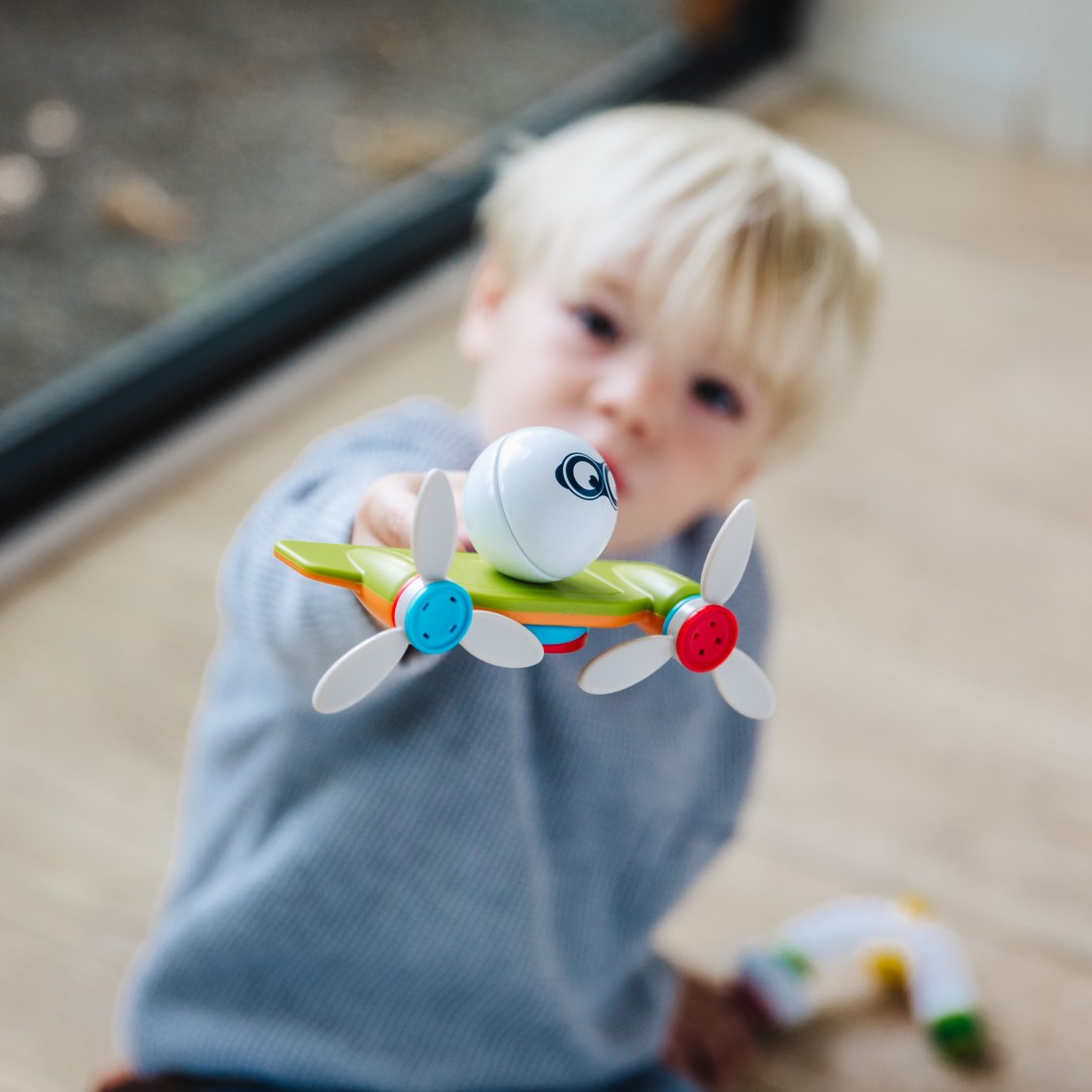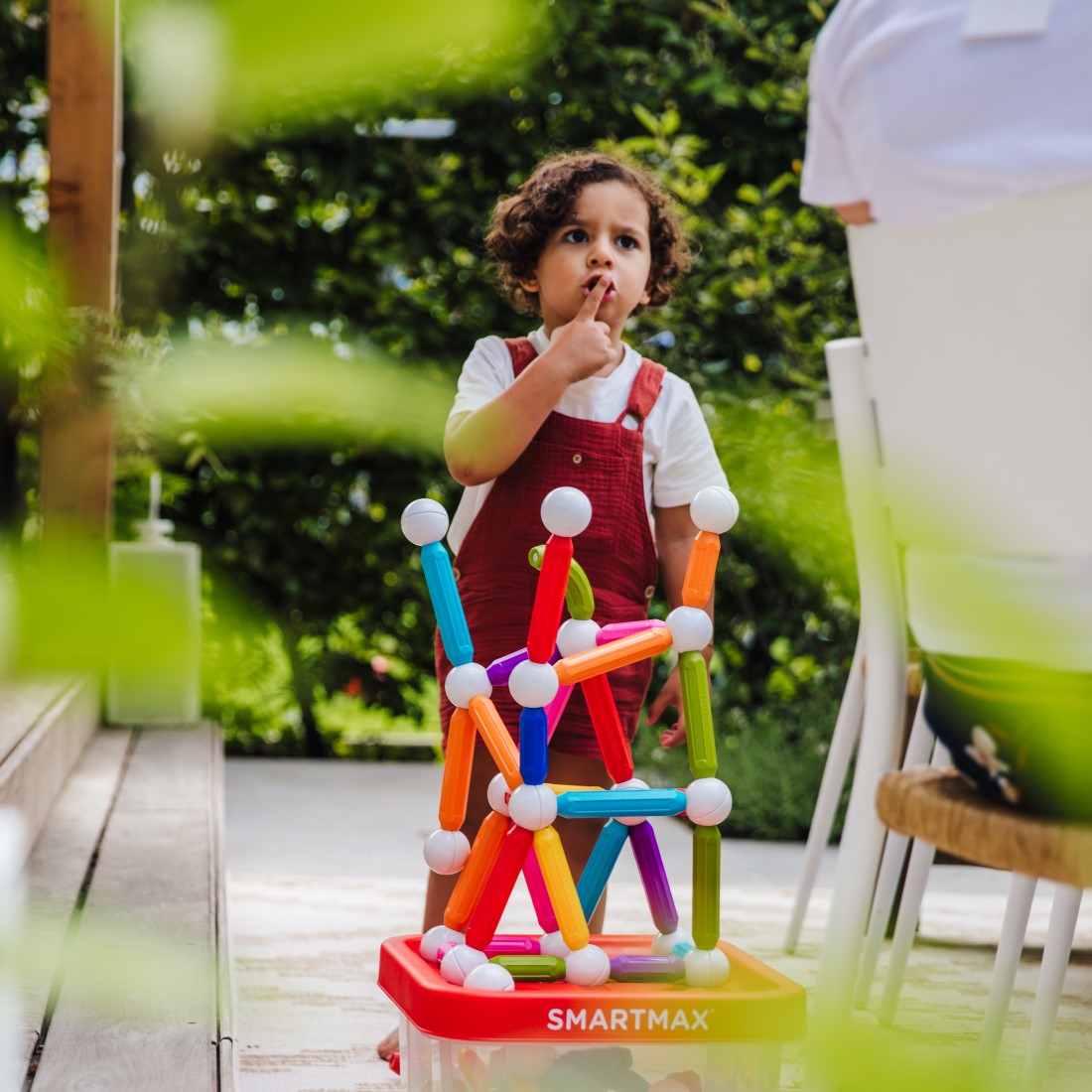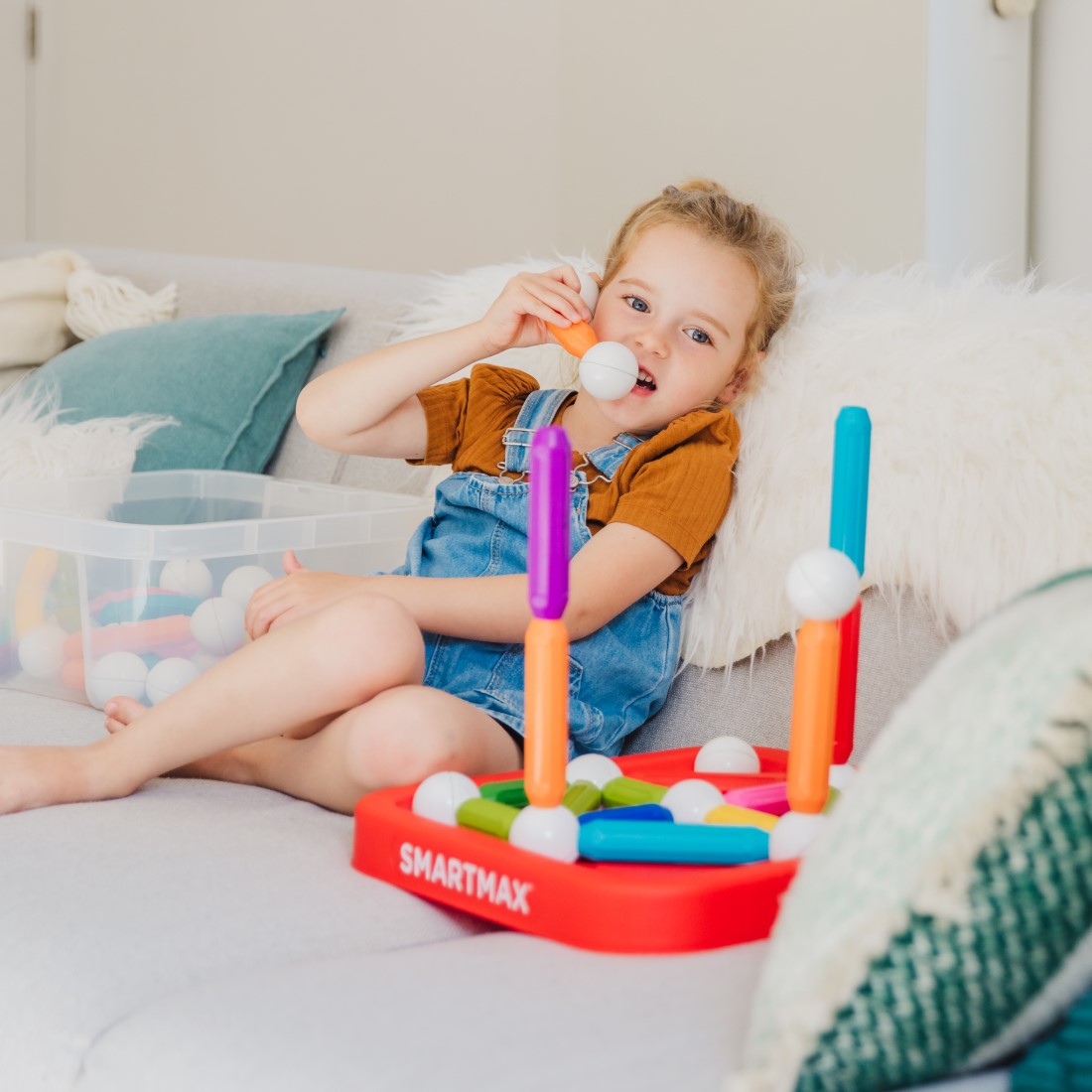Levelling
When playing or conversating with your pre-schooler, make sure to make eye contact. Sometimes it’s easier to make eye contact with them during playtime if you go and sit on the floor to get on their eye-level. Make sure to have a comfy cushion at hand.
Spark interest
Let them choose the game or the toys they want to play with. Or find toys that are in your toddler’s interest field. For example, if your child is obsessed with cars, they will more likely love to talk a lot about the subject and they will have a fun time playing with you. SmartMax My First Vehicles would in this case be a good fit.


Playtime!
Once all is set, start playing! Roleplay or ask questions about what your smallster is doing. Ask questions that stimulate using new words like colours, shapes, locations, adjectives… Example questions when playing with the My First Farm Animals Set could be: what colour does this cow have?, Where do cows live?, What do cows eat?, … Don’t forget to actively listen to their responses. Sometimes it helps to touch or to point to the object you are talking about and make eye contact to make it clearer. Or try something fun, like making up songs or rhymes during your playtime.
Small corrections where needed
While playing, make sure not to fall in the baby-talk trap! Even though baby-talk has its benefits for younger toddlers, it is important to adapt your language gradually as they age. Try to use correct pronunciation, wordings, and grammar. Carefully correct sentences your child makes, point them out when they are interrupting or talking to fast, but without correcting them all the time. Kids still need to feel that they can express themselves to you.
Talk the talk, walk the walk
Parents are big role models for their youngsters. Kids do not only listen to what you say, but they also keep a close eye on you and mimic your behaviour. That’s why it is important to try to give a good example. Make eye contact with others during a conversation and model active listening. Try not to interrupt other people during conversations, not to swear, and use correct grammar and vocabulary.

More information and sources:
Guest writer (07 October 2021). Ways to Develop Speech, Language and Communication Skills Through Play. SpeechLink. https://speechandlanguage.info/blog/2021-10-07-ways-to-develop-speech-language-and-communication-skills-through-play
James Wilshiere (11 October 2021). Communication Skills for Children: Importance, Activities & Games. One Education. https://www.oneeducation.org.uk/communication-skills-for-children/
Nancy Jergins (2022). How to Teach Your Children Good Communication Skills. iMom. https://www.imom.com/how-to-teach-your-children-good-communication-skills/
Lori Orlinsky (25 February 2022). Why Baby Talk is Good and Bad for Kids. Chicago Parent. https://www.chicagoparent.com/parenting/advice/why-baby-talk-is-good-and-bad-for-kids/

